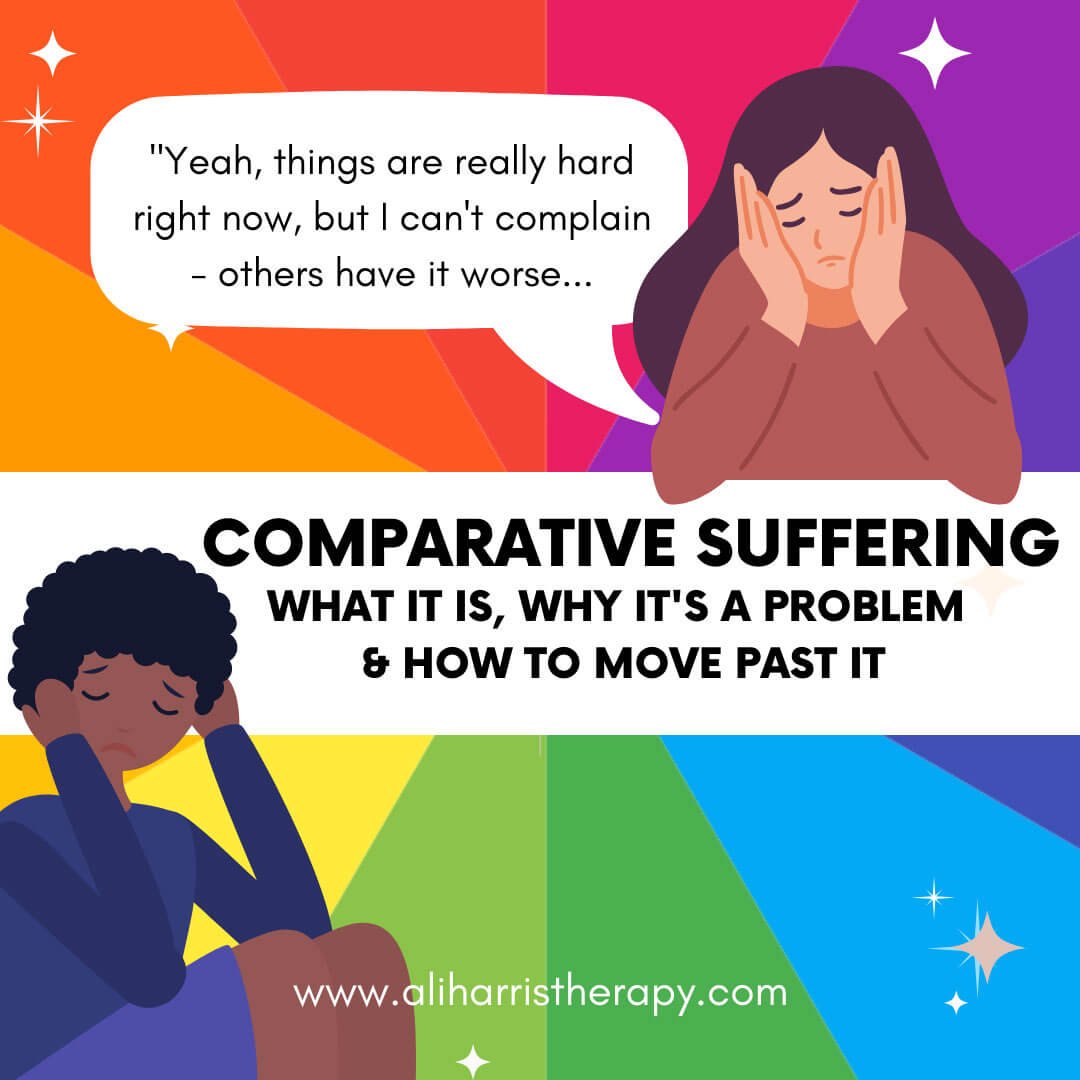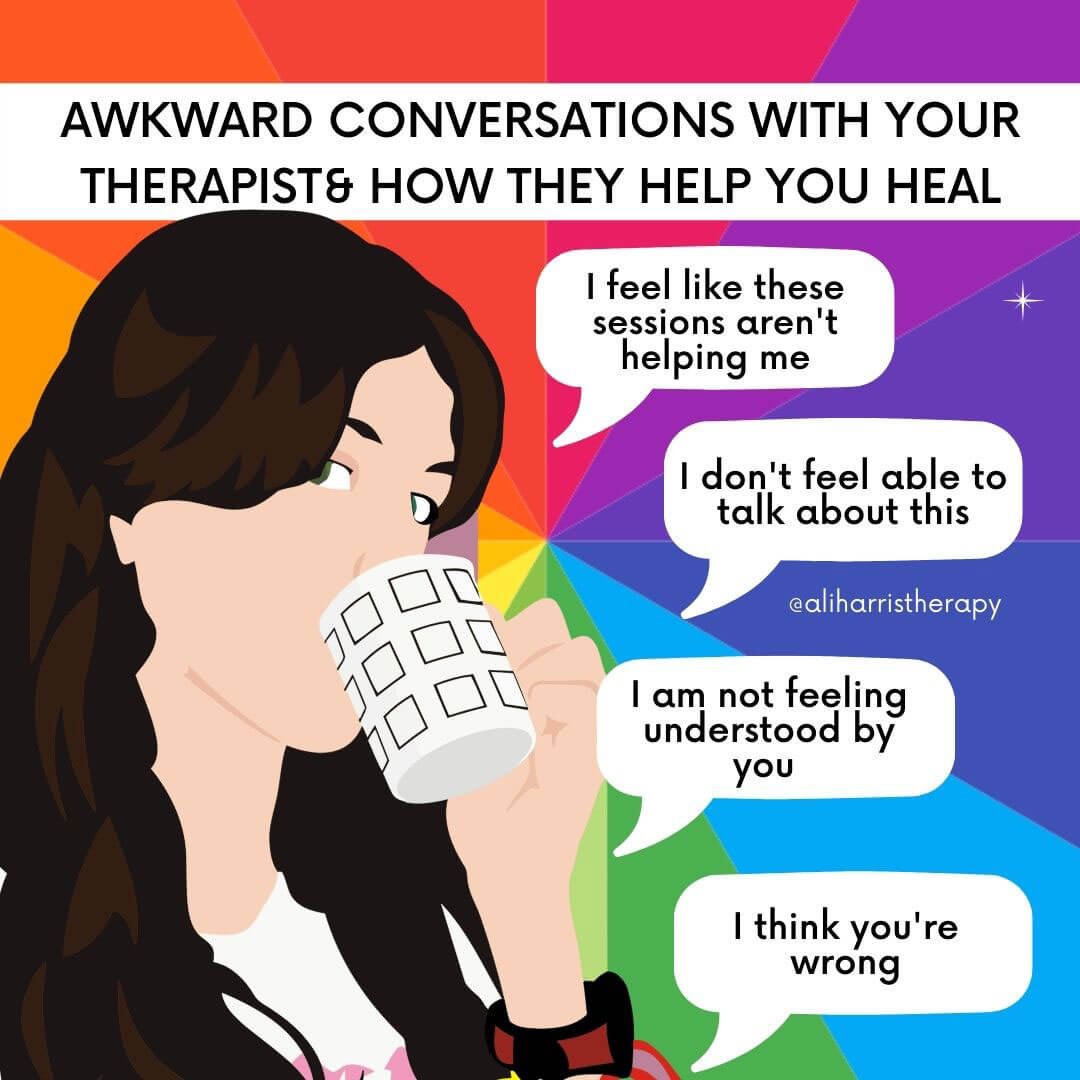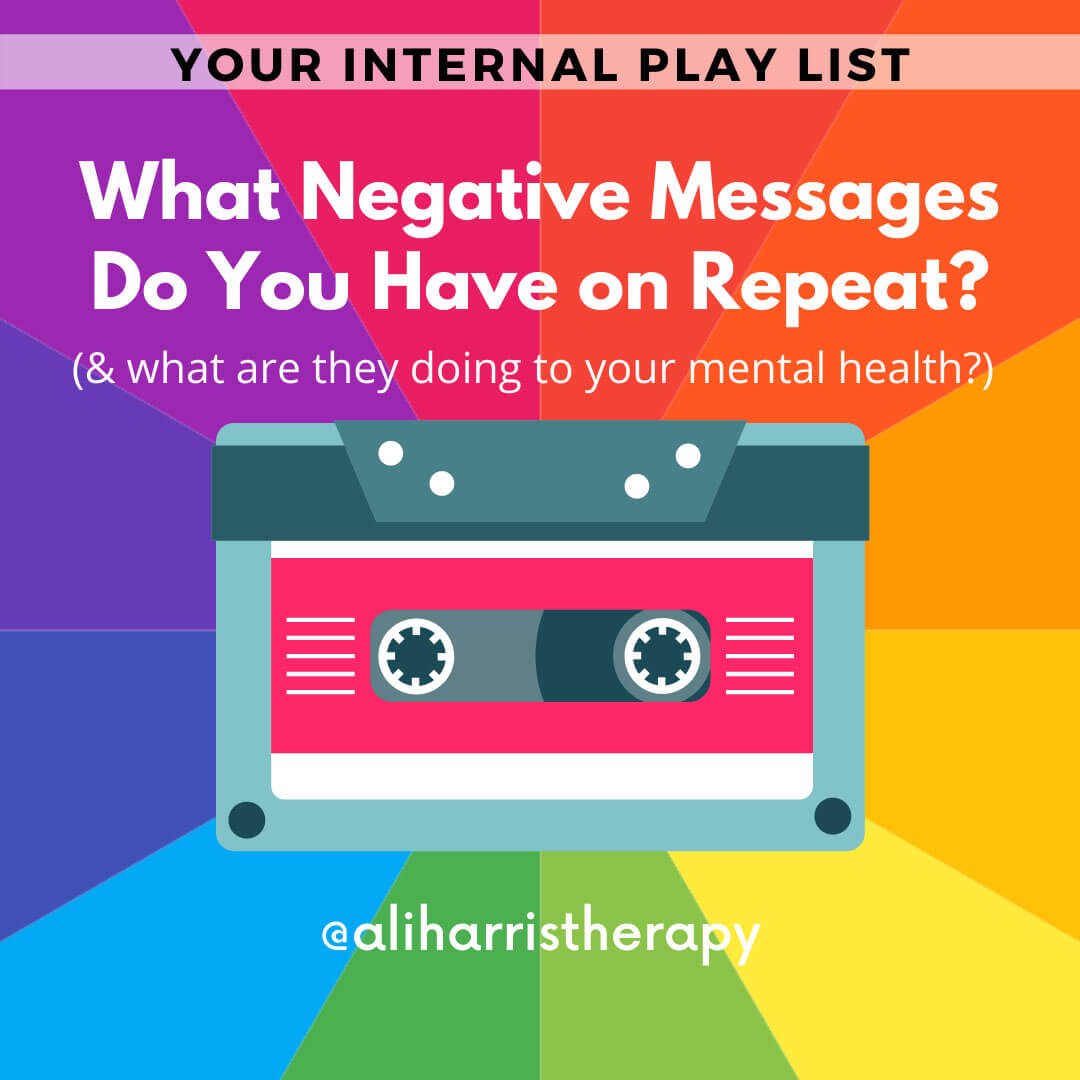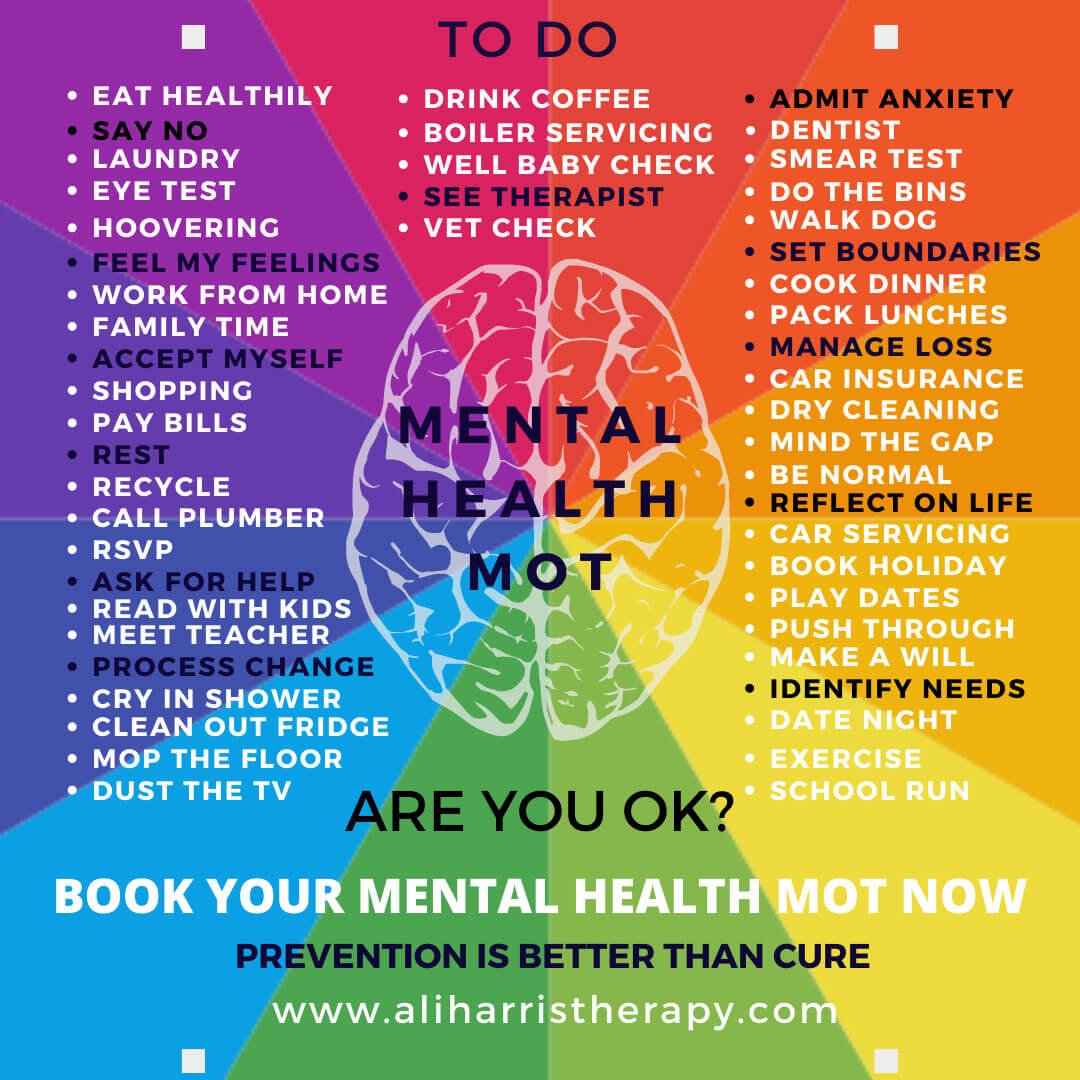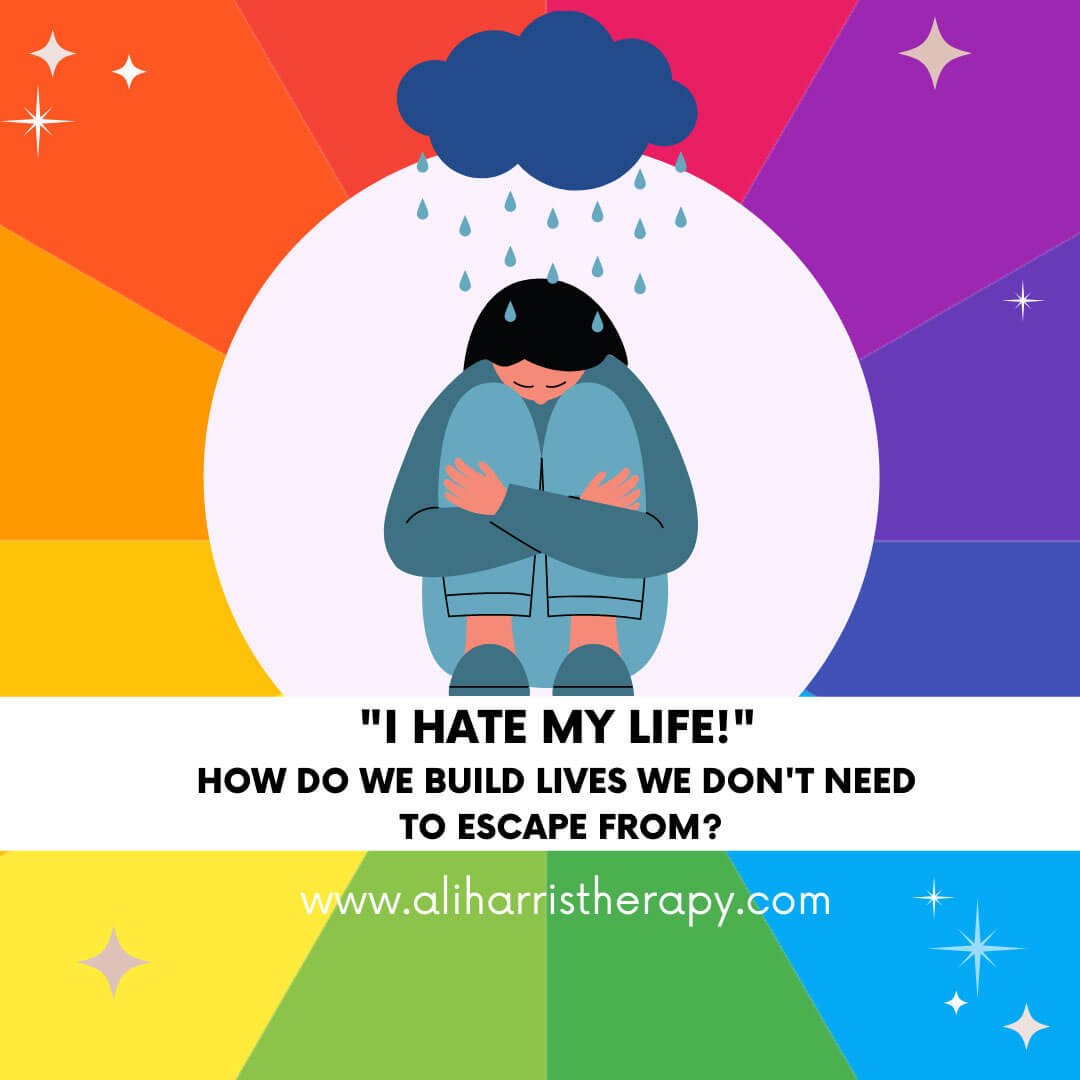Comparative Suffering
Comparative Suffering - what it is, why it's a problem and how to move past it
Comparative suffering makes you feel like you can't complain because 'others have it worse'.
It's a horrible, pernicious feeling - and it turns up everywhere, in all kinds of people, in and out of the therapy room.
Which is why I decided to write about it.
But Ali, Others DO Have It Worse - What's The Big Deal?
Yeah, I know - it doesn't sound like a bad thing at first, does it?
In fact comparative suffering is often perceived as being a sign of emotional maturity - a well-adjusted capacity to use 'helpful perspectives' - such as 'it's just a First World problem' - to create a more positive mind-set.
But is that what comparative suffering actually does?
What comparative suffering actually does
Comparative suffering uses an appearance of positive perspective to defend against uncomfortable and/or painful feelings:
"My boss is bullying me at work, she's being a nightmare... I am struggling to sleep, I feel sick all day and I don't know what to do - but hey, I've got a roof over my head and food to eat, so it's no biggie."
While it may seem to embody a balanced, grateful world view, it also contains a serious emotional dodge.
Comparative suffering doesn't allow you to fully feel whatever is bringing you down - it simply tries to gloss over your painful emotions and move you past them without processing them at all.
This is NOT good.
Ok, so what would be better than comparative suffering?
How about allowing your feelings to surface, acknowledging them, giving attention to them for as long as necessary, having a good cry/rant/pillow-punching session and then later reflecting to yourself:
"It's bad, and I don't like it, it's making me sad and I hate it. It could be worse, I'm grateful that it isn't...but it still sucks."
Why shouldn't I defend against uncomfortable feelings? They're so.... uncomfortable?
I hear you. I do
But here's the thing.
Feelings are like farts - better out than in.
I mean it!
If you don't allow yourself to feel ALL your feelings, you are asking for trouble.
But I thought time healed all wounds?!
Not emotional ones it doesn't.
Feelings want to be felt. They don't go anywhere.
Your ignored feelings will accumulate, get backed up in your psyche and give you TERRIBLE emotional constipation.
And the results? Depression. Anxiety. Overwhelm.
And what is the cure?
Feeling, expressing and thereby processing your unfelt feelings.
Unfelt feelings will have to be faced, whether it's now or later.
Doing it now gives you a much better chance or not having to do it later with a therapist, whilst signed-off from work with anxiety or depression.
And that's just for starters.
Minimising your difficulties makes it harder for you to feel your feelings
Every time you talking down your own difficulties you actually make it harder to stay emotionally healthy.
Why?
Because it pushes you even further away from being able to feel and process your own feelings.
It causes you to doubt that your feelings are reliable and proportionate.
If you can't rely on your feelings for an accurate read-out of how things affect you, how can you rely on your capacity to manage them?
Comparative suffering helps no one
If the admission that others have it worse was useful, I might be less opposed to it.
For example, the hullaballoo caused by my dog eating my middle child's ADHD medication was absolutely a full-blown 'first world problem', a mini-crisis firmly embedded in middle-class privilege.
If you were to compare it to the problem of starvation, my puppy problem is obviously less weighty.
But here's the thing...
Me down-playing my pug problem doesn't actually FEED starving people, or positively impact their plight in ANY WAY. If I let it, that comparison just makes me feel ashamed and alone with my problems.
If it's a problem for you, it's ok to say so
My answer to 'oh your problems are so middle class and 'first world,' is that I am a middle class woman and I live in the 'first world', so most of my problems will automatically qualify as 'First World Problems.'
Should I be shamed for that?
Does that mean that my problems should be classified as unimportant?
Hell no!
I refuse to sign up for Comparative Suffering events in the emotional Olympics, and I urge you not to do it either!
A difficult experience does not have to be the worst thing that could happen in order to be a problem.
If it negatively impacts on me, or you, or anyone - then it's a legitimate problem, end of.
Help for comparative suffering - therapy, anyone?
If you notice that you're always comparing your problems to those of others, and dismissing yours because 'others have it worse', perhaps you'd like some help with that?
We could have a chat - you could tell me what that's like for you, and anything else you fancied telling me. You can ask me questions about how I work, the kind of support I offer, and anything else you'd like to know.
And by the end of that chat, you should have a good idea of whether or not I'm someone you could really talk to.
The chat isn't a therapy session per se, it lasts for up to one hour and it's absolutely free.
If that sounds good to you, please click here to book yours now or if you'd like to find out a bit more about me, you can click here to choose a number of ways to do that.
But whether or not you get in touch with me, I want you to know that your problems are important, it matters if you are struggling, you deserve to express how you feel about it, and you should be met with kindness when you do, ok?
Self-Love Quiz
Self-love is the foundation of mental health, which is why I created the self-love quiz – to help you measure you self-love level & help you learn how to improve your mental health, so that you can create a happier, more satisfying life!

